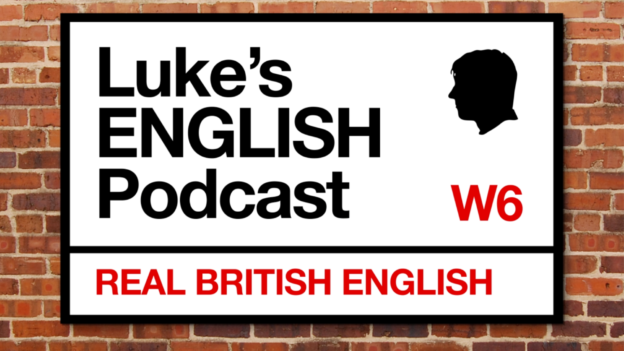Talking to my mum again about her latest book recommendation. A Gentleman In Moscow is about a Russian Count who is put under house arrest in 1922 in the beautiful Metropol Hotel in Moscow.
[DOWNLOAD]
LEP Premium Promo
This episode is sponsored by LEP Premium. With Luke’s English Podcast I have two podcasts in fact. There’s the free episodes, which feature monologues, conversations with guests or specific topics. That’s where you get to listen to natural English on a regular basis, presented to you, for you. Then the premium episodes are all about language. Often I take samples from free episodes, then break them down for target language which I teach to you, help you remember and pronounce correctly. So the double whammy is to listen to LEP and also be a premium subscriber, to get the maximum benefit from my work. To get started with LEPP go to www.teacherluke.co.uk/premiuminfo for more info.
Introduction Transcript
Welcome to Gill’s Book Club, on Luke’s English Podcast.
This is the second Gill’s Book Club episode and this is where I talk to my mum, Gill Thompson, about books that she’s enjoyed.
My mum loves books, she’s a voracious reader, a member of a book club with her friends and she works in a second hand bookshop.
She gets through loads of books, and so this is naturally a topic that we can explore together on the podcast.
How does this work?
We pick a book a few months in advance, give people a chance to read it, then talk about it on the podcast, including some of the main plot points (no spoilers) characters, context and details.
Do you have to read the book too?
No. We’ll explain the main plot points without giving away any spoilers.
But you can read the book if you like, or get the audiobook version.
You could read the book first, then listen. Or listen first, then read the book, or just listen without reading the book at all, and enjoy hearing my mum talking about it, the characters, the story and so on. There might also be some nice vocabulary coming up which you can notice as we go along. As usual, check the episode page on my website to see some vocabulary notes and transcripts.
For other episodes I’ve done with advice on reading books to improve your English, check the episode archive.
I said earlier this year that the book we’d be talking about is A Gentleman In Moscow, by Amor Towles, and so that’s the main topic of conversation here.
A Gentleman in Moscow is a 2016 novel by Amor Towles. It is his second novel, following the release of the New York Times bestselling novel Rules of Civility. The novel concerns Count Alexander Ilyich Rostov, a man ordered by a Bolshevik tribunal to spend the rest of his life in a luxury hotel in the heart of Moscow. Wikipedia
There’s a bit of smalltalk at the beginning, and then we get stuck into the book.
I’ll talk to you again on the other side of this conversation, but now, let’s listen to my mum talking about her latest book recommendation.
——
Vocabulary Notes & Questions
Can you comment on these things with reference to the characters and events in the book?
Manners
Integrity
Loyalty
Vocabulary
Class
Do these words apply to Count Alexander Rostov?
Witty
Likeable
Standoffish
Spoiled
Privileged
Glass half full / Glass half empty
Does he change during the book?
House arrest
Did this book make you think of the lockdown?
If you had to be on house arrest, but you can choose any building you like, which building would you choose?
Which building would you choose to be locked inside? (not your own home)
Book club
What did the women from the book club think of it?
Book recommendation
The Year of Reading Dangerously by Andy Miller
Picture of Ivan the Terrible
https://booksyo.files.wordpress.com/2015/01/repin_ivan_terribleivan.jpg
Ivan the Terrible and His Son Ivan on 16 November 1581 is a painting by Russian realist artist Ilya Repin made between 1883 and 1885.

Ending Transcript
So there you are. That was my lovely mum talking about a lovely book and it was all lovely lovely lovely.
Again, check out the page for this episode on my website for vocabulary notes, and the names of the different books and things that we mentioned, plus the chance to see that painting of Ivan the Terrible and more.
I’m still deep inside P24, having published 9 out of 12 parts. More coming for premium subscribers soon…
Later today I’m interviewing my dad.
I don’t like to talk on the podcast about stuff I’m going to do, because I’ve learned that often things don’t go as you expect and it’s unwise to make the listeners think that something is coming when it actually can’t happen because of a technical issue or a scheduling problem or something.
So, who knows, we might not be able to actually do the recording, but the plan is to talk to my dad later today, also about a book. But this isn’t a book that he’s read, written by someone else, it’s actually a book he’s written himself. Yep, he wrote a book during the lockdown. What’s with all these books!? About 5 people I know have written books during the lockdown, including my dad. So stay tuned to LEP in order to (hopefully) listen to a conversation with Rick Thompson about his new book.
Thanks again to my mum for her contribution to this episode.
I hope you all enjoyed listening to it and as ever I look forward to reading your comments and responses to this episode in the comment section on my website, but also on YouTube where you can find all my episodes, and you can keep in touch on social media, my favourite being Twitter and my handle is @EnglishPodcast
Take care everyone. I’ll speak to you again soon, but for now, good bye…









